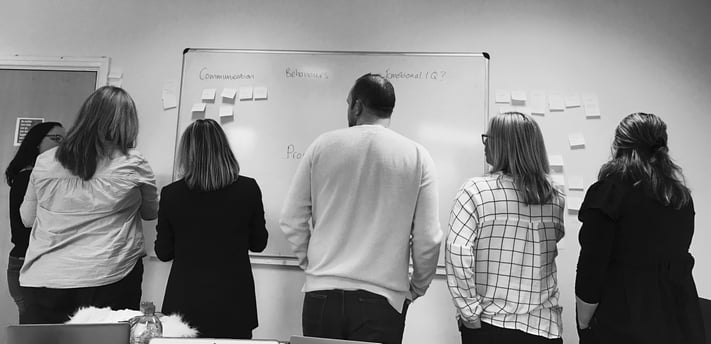 For many managers one of the greatest challenges is being able to balance the needs of the organisation, with the needs of their role and the people within their teams. Successful leaders have learnt the art of becoming personally effective therefore providing more time to focus on what is truly important in order to drive success.
For many managers one of the greatest challenges is being able to balance the needs of the organisation, with the needs of their role and the people within their teams. Successful leaders have learnt the art of becoming personally effective therefore providing more time to focus on what is truly important in order to drive success.
Here are some of our top tips for eliminating time wasters from your day and creating more time to lead.
Eliminate Distractions - These can come in many forms and generally they are opportunities for other people to control our time. Whether it’s the telephone, people ‘dropping in’ for a chat, colleagues asking questions or the constant barrage of emails, they all impact upon your time and distract you from what you should be focused upon. Eliminate what you can, control those that cannot be eliminated and be gracefully courteous when turning people away.
Ask yourself how much time do you spend on distractions? Learn to spot them and get rid of them.
Don’t solve other people’s problems - If people keep bringing you problems, here are some ideas to try:
- learn to say no not now – ask them to come back later when it suits you (it is surprising how often the problem is solved without you)
- get them to solve it – if they haven’t thought it through, why should you? Asking them to suggest solutions (and come back later) encourages them to be less dependent on you.
Remember; every time you solve someone’s problem, you encourage them to keep coming back to you. Leaders develop people to become independent thinkers, decision makers and problem solvers. They don’t do this through solving everyone’s problems for them.
Manage meetings. They are the biggest source of wasted time in many organisations. Time manage them. Don’t meet for the sake of it, set time limits, work to agendas, don’t allow overruns. Try meeting standing up or actually take a walk whilst meeting; not only do you stick to time but you become refreshed and ready to return to work, increasing your own personal productivity!

(Ascento Level 5 Diploma in Leadership & Management learners exploring the art of personal effectiveness)
Learn to delegate and stop doing someone else's job. I once met a senior executive in the motor industry who struggled to find time to focus on developing a new strategy for the business. When we analysed what he spent time on, the first 30 – 45 minutes of every day involved him moving all the cars in the car park so that they were in the right order to be processed by the mechanics repairing or servicing them! 2 ½ hours per week, 130 hours per year…moving cars!
How much work are you doing that really should be delegated? Too much, if you are like most managers. Learn to trust others – but remember they need support at first.
So what next?
My advice, to you is to try at least one technique and give it a go for at least a week. What would be the worst-case scenario if it didn’t work? Would anyone actually notice if you didn’t open your email account for a few hours? Would they get upset if you tactfully suggested they try to deal with a problem because you are in the middle of something? Would the business crumble if meetings stuck to time or someone else moved the cars in the car park!!
Becoming personally effective is critical to your success as a manager or leader and you need to set the standard for others: for how can you expect others to be effective and productive if you are not?







